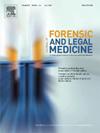PTSD assessments in sexual assault trials in Taiwan: Interdisciplinary Challenges and Implications for Judicial Policy Reform
IF 1.2
4区 医学
Q3 MEDICINE, LEGAL
引用次数: 0
Abstract
This study investigates the impact of forensic post-traumatic stress disorder (PTSD) evaluations on judicial outcomes in sexual offense cases in Taiwan, while also analyzing associated risks and proposing potential improvements.
In light of the limited statistical data and judicial assessments of such reports in Taiwan, the study employs a quantitative research design, analyzing sexual assault rulings from 2020 to 2023 across six district courts (Kaohsiung, Ciaotou, Taichung, New Taipei, Taipei, and Shilin). Additionally, in-depth interviews were conducted with three judges to gather qualitative insights into judicial perceptions of PTSD evaluation reports.
The results indicate a statistically significant correlation between the presence of PTSD forensic assessments and guilty verdicts. Judges generally recognized the evidentiary value of such reports, though the degree of reliance varied by region. Courts in southern Taiwan (Kaohsiung and Ciaotou) showed higher usage rates, whereas courts in central and northern regions tended to rely more on general medical diagnoses, likely due to limited collaboration with evaluation institutions, budget constraints, and lengthy assessment procedures. Moreover, the structure of Taiwan's National Health Insurance system may contribute to risks of overdiagnosis, potentially affecting the fairness of trials. Based on these findings, the study offers four key recommendations: (1) formal PTSD evaluations by certified institutions for suspected victims; (2) allocation of sufficient resources and budgets for assessments across all jurisdictions; (3) development of a national registry of forensic psychiatric units to support legal practitioners; and (4) enhanced collaboration between judicial and medical institutions to improve case processing efficiency. Limitations regarding sample size and geographic scope are acknowledged, and future research is encouraged to broaden the dataset and explore additional factors influencing judicial decisions, in order to strengthen the institutionalization and application of PTSD assessments in sexual assault litigation.
台湾性侵审判中的创伤后应激障碍评估:跨学科挑战与司法政策改革的启示
本研究旨在探讨法医创伤后应激障碍(PTSD)评估对台湾性犯罪案件司法结果的影响,并分析相关风险,并提出改进建议。鉴于台湾性侵案件的统计资料和司法评估有限,本研究采用定量研究设计,分析高雄、桥头、台中、新北、台北和士林六个地方法院2020年至2023年的性侵案件判决。此外,对三位法官进行了深入访谈,以收集对PTSD评估报告的司法观念的定性见解。结果表明,PTSD法医评估与有罪判决之间存在统计学上显著的相关性。法官一般承认这类报告的证据价值,尽管依赖程度因地区而异。台湾南部法院(高雄和桥头)的使用率较高,而中部和北部地区的法院往往更依赖于一般的医疗诊断,这可能是由于与评估机构的合作有限、预算限制以及评估程序冗长。基于这些发现,该研究提出了四个关键建议:(1)由认证机构对疑似受害者进行正式的PTSD评估;(2)为所有司法管辖区的评估分配足够的资源和预算;(3)建立法医精神科单位的国家登记处,以支持法律从业人员;(4)加强司法和医疗机构之间的协作,提高案件处理效率。我们承认样本量和地理范围的局限性,并鼓励未来的研究扩大数据集,探索影响司法决定的其他因素,以加强创伤后应激障碍评估在性侵犯诉讼中的制度化和应用。
本文章由计算机程序翻译,如有差异,请以英文原文为准。
求助全文
约1分钟内获得全文
求助全文
来源期刊

Journal of forensic and legal medicine
MEDICINE, LEGAL-
CiteScore
2.70
自引率
6.70%
发文量
106
审稿时长
57 days
期刊介绍:
The Journal of Forensic and Legal Medicine publishes topical articles on aspects of forensic and legal medicine. Specifically the Journal supports research that explores the medical principles of care and forensic assessment of individuals, whether adult or child, in contact with the judicial system. It is a fully peer-review hybrid journal with a broad international perspective.
The Journal accepts submissions of original research, review articles, and pertinent case studies, editorials, and commentaries in relevant areas of Forensic and Legal Medicine, Context of Practice, and Education and Training.
The Journal adheres to strict publication ethical guidelines, and actively supports a culture of inclusive and representative publication.
 求助内容:
求助内容: 应助结果提醒方式:
应助结果提醒方式:


